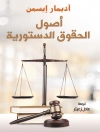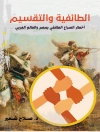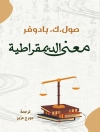What can ‚assemblage‘ thinking contribute to the study of international relations theory? This study seeks to investigate how the various debates on assemblages in social theory can contribute to generating critical considerations on the connections and dissociation of political agency, physical world and international dynamics.
Inhaltsverzeichnis
1. Assemblage thinking and International Relations; Michele Acuto and Simon Curtis PART 1: THEORIES 2. Conversation with Saskia Sassen and Aihwa Ong 3. Conversation with Michael Williams and Rita Abrahmsen 4. Conversation with Stephen Collier PART 2: ONTOLOGIES OF ASSEMBLAGE 5. Cognitive assemblages and the production of knowledge; Nick Srnicek 6. Global assemblages and structural models of international relations; Olaf Corry PART 3: METHODS OF ASSEMBLAGE 7. Thinking Assemblage Methodologically: Some rules of thumb; Christian Bueger 8. Energising the International; Debbie Lisle 9. Visual Assemblages: From Causality to Conditions of Possibility; Roland Bleiker PART 3 – MATERIALITIES OF ASSEMBLAGE 10. Security in action: how John Dewey can help us follow the production of security assemblages; Peer Schouten 11. Welcome to the Machine: Rethinking Technology through Assemblage Theory; Antoine Bousquet PART 4: POLITICS OF ASSEMBLAGE 12. The onto-politics of assemblage; David Chandler 13. Agencement and Traces: A Politics of Ephemeral Theorizing; Xavier Guillaume 14. The Assemblage and the Intellectual as Hero; Mark Salter Conclusions: Assemblage Theory and its Future; Graham Harman
Über den Autor
Rita Abrahamsen, University of Ottawa, Canada Roland Bleiker, University of Queensland, Australia Antoine Bousquet, Birkbeck College, University of London, UK. Christian Bueger, Cardiff University, UK David Chandler, University of Westminster, UK Stephen Collier, New School, USA Olaf Corry, Open University, UK Xavier Guillaume, University of Edinburgh, UK Graham Harman, The American University, Cairo Debbie Lisle, Queen’s University Belfast, UK Maximilian Mayer, Bonn University, Germany Aihwa Ong, University of California, Berkeley, USA Mark Salter, University of Ottawa, Canada Saskia Sassen Columbia University, USA Peer Schouten, University of Gothenburg, Sweden Nick Srnicek, London School of Economics, UK Michael Williams, University of Ottawa, Canada












